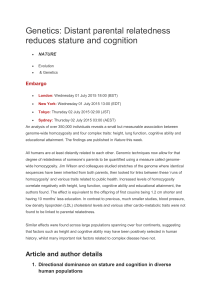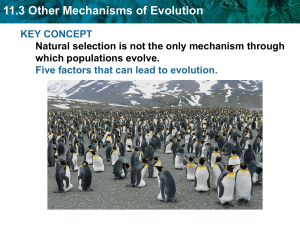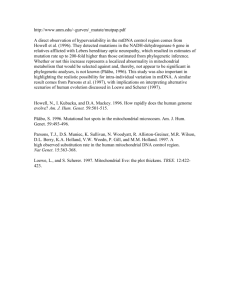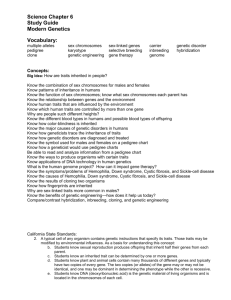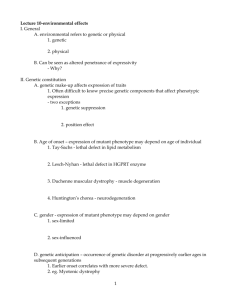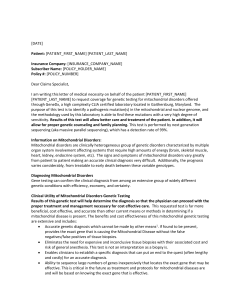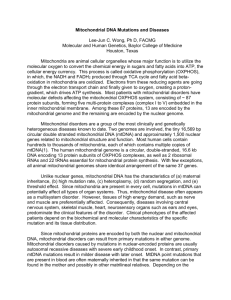Drs Jim Wilson and Peter Joshi - 3 potential PhD projects Emails: jim
advertisement
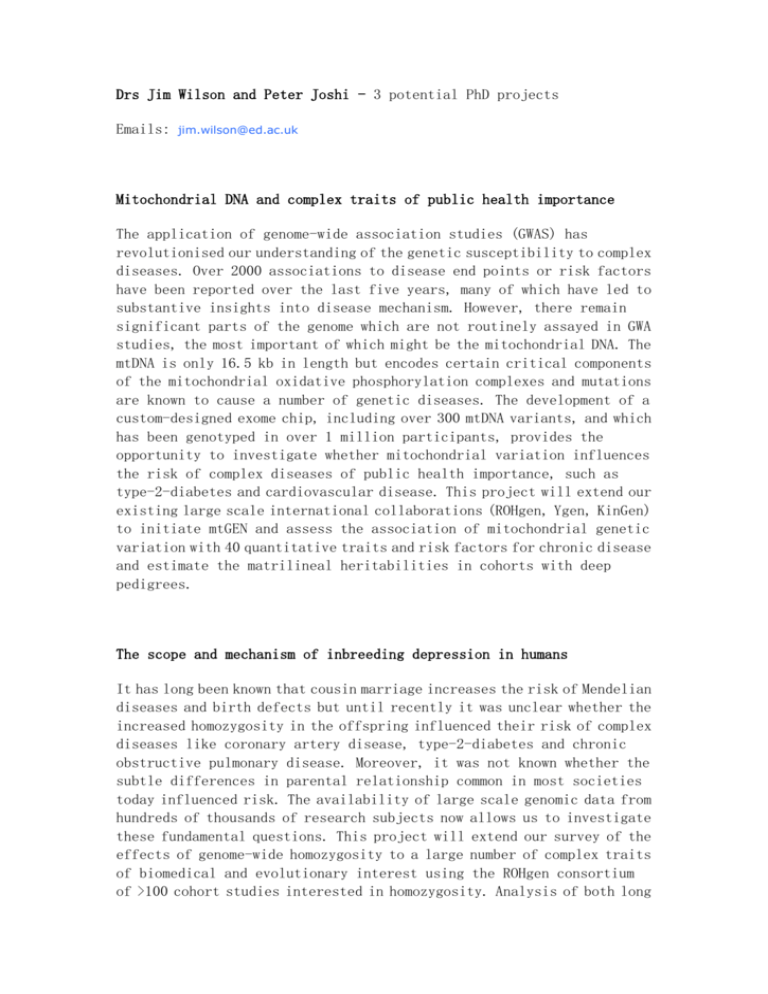
Drs Jim Wilson and Peter Joshi - 3 potential PhD projects Emails: jim.wilson@ed.ac.uk Mitochondrial DNA and complex traits of public health importance The application of genome-wide association studies (GWAS) has revolutionised our understanding of the genetic susceptibility to complex diseases. Over 2000 associations to disease end points or risk factors have been reported over the last five years, many of which have led to substantive insights into disease mechanism. However, there remain significant parts of the genome which are not routinely assayed in GWA studies, the most important of which might be the mitochondrial DNA. The mtDNA is only 16.5 kb in length but encodes certain critical components of the mitochondrial oxidative phosphorylation complexes and mutations are known to cause a number of genetic diseases. The development of a custom-designed exome chip, including over 300 mtDNA variants, and which has been genotyped in over 1 million participants, provides the opportunity to investigate whether mitochondrial variation influences the risk of complex diseases of public health importance, such as type-2-diabetes and cardiovascular disease. This project will extend our existing large scale international collaborations (ROHgen, Ygen, KinGen) to initiate mtGEN and assess the association of mitochondrial genetic variation with 40 quantitative traits and risk factors for chronic disease and estimate the matrilineal heritabilities in cohorts with deep pedigrees. The scope and mechanism of inbreeding depression in humans It has long been known that cousin marriage increases the risk of Mendelian diseases and birth defects but until recently it was unclear whether the increased homozygosity in the offspring influenced their risk of complex diseases like coronary artery disease, type-2-diabetes and chronic obstructive pulmonary disease. Moreover, it was not known whether the subtle differences in parental relationship common in most societies today influenced risk. The availability of large scale genomic data from hundreds of thousands of research subjects now allows us to investigate these fundamental questions. This project will extend our survey of the effects of genome-wide homozygosity to a large number of complex traits of biomedical and evolutionary interest using the ROHgen consortium of >100 cohort studies interested in homozygosity. Analysis of both long and short runs of homozygosity and regional mapping of homozygous effects will illuminate the mechanism of inbreeding depression and highlight areas of the genome harbouring recessive variants influencing the study traits. The genetics of longevity A new wave of increasingly large scale genetic information is being produced by population cohorts internationally. This opens up novel possibilities in understanding the contribution of genetic variation to many human traits and diseases, in particular human lifespan, which has hitherto been understudied due to lack of statistical power. This project will focus on the analysis of evidence for genetic association with human lifespan. Work will employ 500k subjects genotyped at UK Biobank and population cohorts run by us and our collaborators (Generation Scotland, ORCADES, EGCUT) to examine the genomic architecture of lifespan, to estimate the heritability of living to different ages, to explore what lifespan genetics have in common with chronic diseases and healthy ageing, to explore novel association signals and to follow up confirmed signals using bioinformatic analysis.
